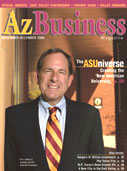Note: All fields are required.
from our blog
Seatback Failures
Front occupant seatbacks play a vital safety role in rear-end crashes, similar to the purpose of airbags and seatbelts in frontal impacts. In a rear impact, a front seat should be designed to absorb energy and contain the occupant in the front seating space. Weak, defective front seats can fail, collapse and cause front occupants […]

Homeowner’s Insurance Appraisal Process
The term “appraisal” as defined in a homeowner’s insurance policy has an entirely different meaning than the one more commonly used in every day language. Normally when we hear the term appraisal, we think of a real estate appraisal that is used to determine the value of a home. However, in a homeowner’s insurance policy, the appraisal process is more similar to a three-member-panel arbitration proceeding which is used to determine the value of a personal property loss or home repair dispute that results from a covered homeowner’s insurance loss.
Similar to arbitration, the appraisal process is an alternative dispute resolution intended to resolve disputes without the need for litigation. It is supposed to be less expensive to the insured and less time consuming. The majority of homeowner’s insurance policies enable appraisal when the insurance company and policy holder are unable to agree concerning the value of loss to a covered property. Appraisal is not available when there is a coverage dispute. In an appraisal, each party generally names their own appraiser to value the loss and attempt to reach an agreement. If the parties’ appraisers cannot agree on an amount, then it is up to a third appraiser, usually called an umpire, to resolve the dispute. Each party is responsible for the cost of their own appraiser and equally split the cost for the umpire. Attorneys’ fees and costs usually are not recoverable through the appraisal process.
Unfortunately in recent years, insurance companies have been writing complex agreements detailing the scope and procedure for the appraisal. These complex, sophisticated appraisal agreements have led to an increase in disputes between the insurance consumer and their insurance companies. Of course, the insurance consumer has no input whatsoever into the terms contained within these appraisal agreements because the insurance company simply includes the language in the insurance policy. Because insurance contracts are generally considered contracts of adhesion, i.e., the insurer draws up the contract and the insured has little or no ability to make material changes to it, Arizona consumers best defense to unfair, unforeseen terms is Arizona’s “reasonable expectation” doctrine.
Insurance companies are also becoming more aggressive in insisting that the insurance consumer sign an appraisal agreement even though the insurance consumer may not understand that the agreement does not always cover the entire scope of the loss. The insured homeowner needs to make sure the agreement he or she signs completely encompasses the scope of the insurance loss. If it does not, the insurance company will argue that the insurance consumer should not be allowed to assert a claim for those additional damages not included in the agreement.
Arbitration in Motor Vehicle Policy Conflicts
Arbitration is commonly used to resolve disputes that arise between an insurer and insured. Arbitration, along with mediation, is a form of Alternative Dispute Resolution (ADR). When parties disagree about some aspect of their car insurance plan they agree to submit the issues to the judgment of a private third party neutral judge, called an arbitrator. The arbitrator reviews the evidence in a hearing similar to the kind of civil law hearings that take place in courtrooms. The difference with arbitration is that it is much faster, less expensive, and more informal than courtroom litigation.
Because automobile insurance claims are made in great numbers every day, the number of disputes that will arise is also naturally high. Arbitration gives policy holders a way to resolve their disputes without having to clog up the courts with thousands of cases that could be more easily resolved through ADR. For these reasons arbitration clauses are standard in most motor vehicle insurance policies.
Arbitration is not perfect though. Because it is less formal it does not allow the same kind of fact finding that smaller parties need to engage in to pull all of the relevant evidence from the insurance company. Additionally, arbiters can sometimes be biased in the favor of insurance companies. A well known arbiter will hear dozens of cases each year, with only a handful of the same insurance companies again and again. The policy holder on the other hand will probably only see the arbiter once in their entire life. As a result aribtrators feel pressure to make decisions that the insurance company finds fair in order to make sure they continue to get hear cases. If an arbiter appears to be biased, either party can request a new arbiter to take his or her place.

quick links
9735 E. Shea Blvd.
Suite 100
Scottsdale, Arizona 85259
Telephone 480-874-2918
Facsimile 480-588-5063






 Subscribe by Email
Subscribe by Email Shane Harward
Shane Harward Find us on Facebook
Find us on Facebook


